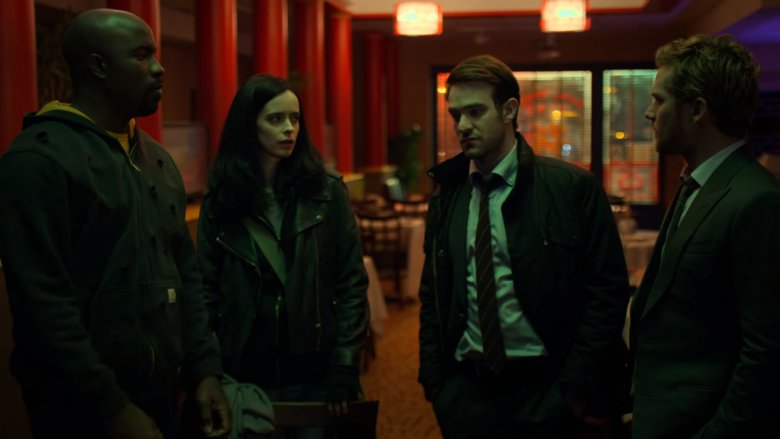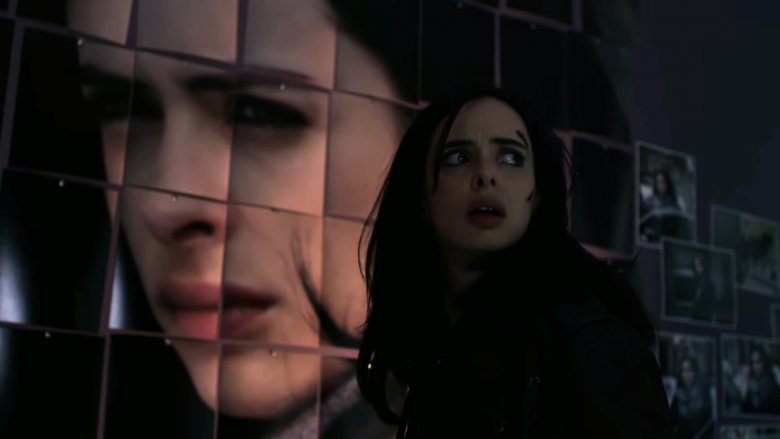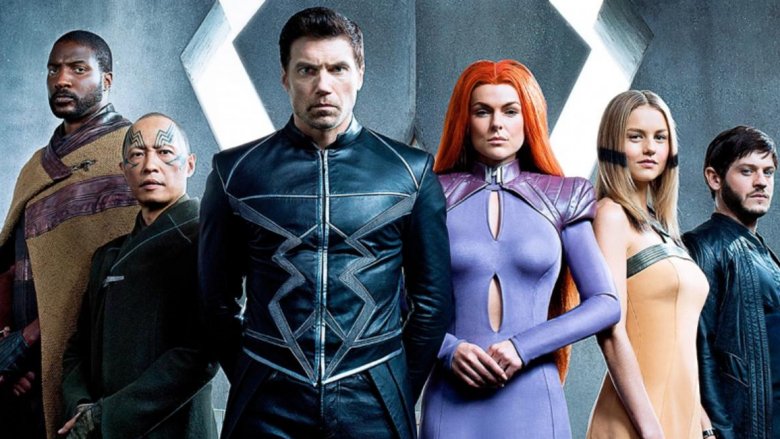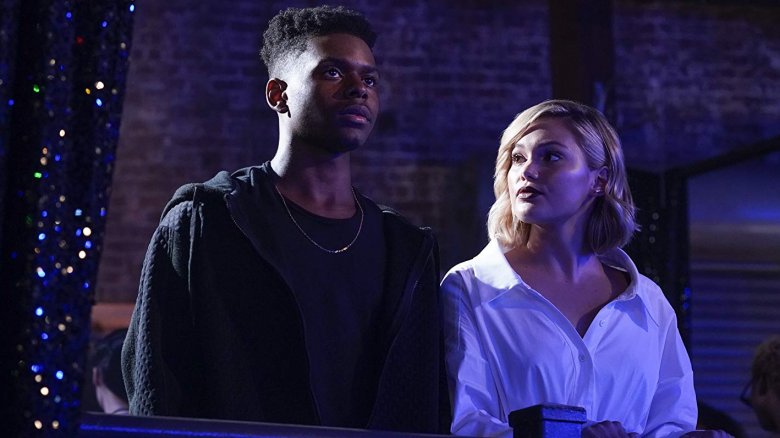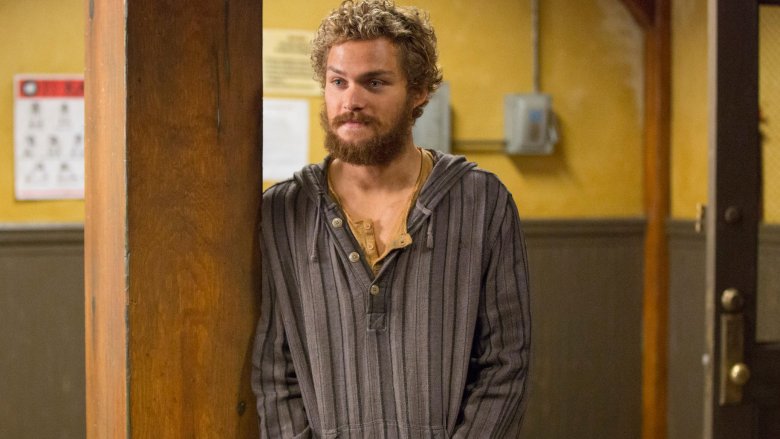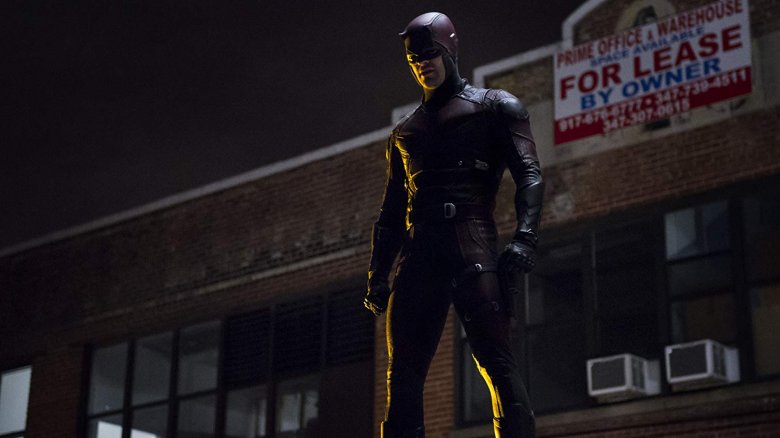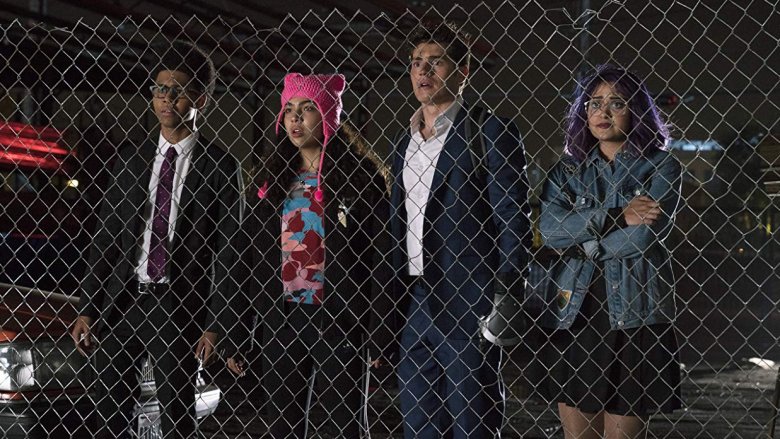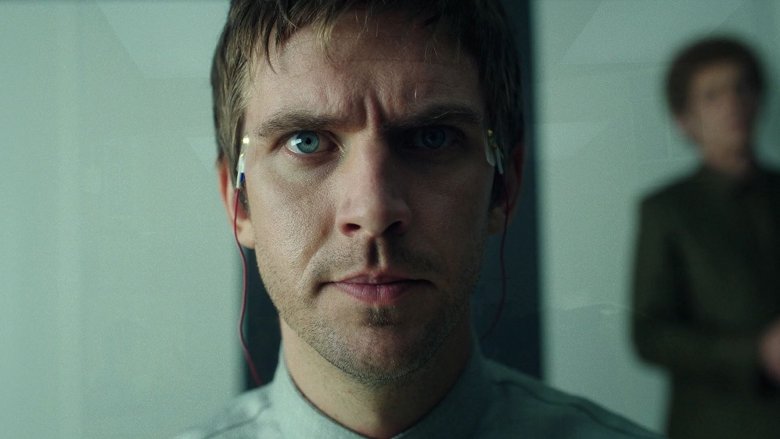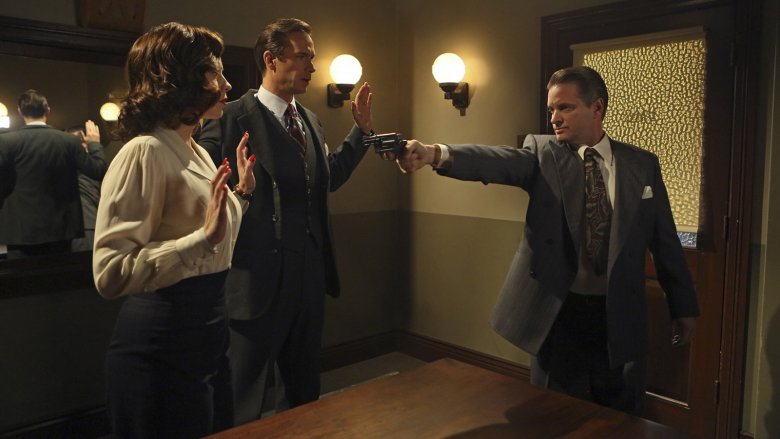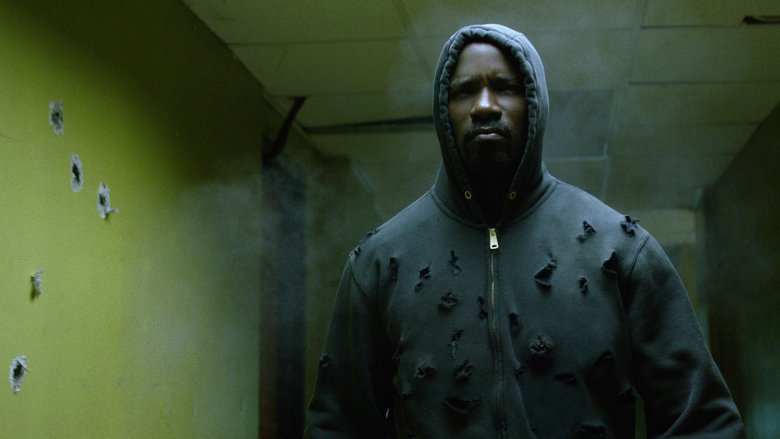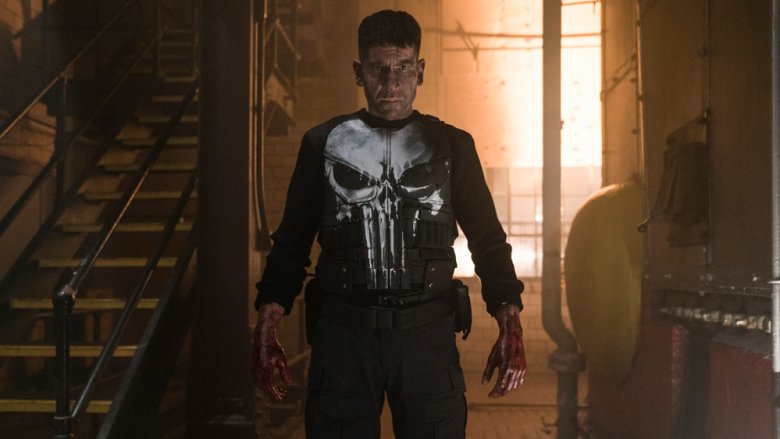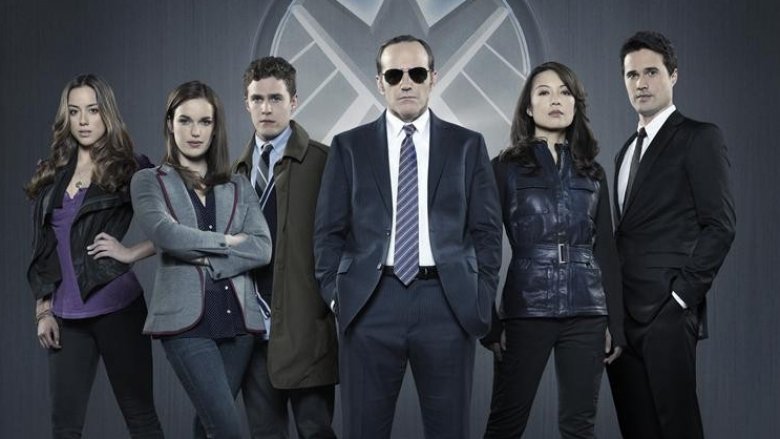The 5 Best And 5 Worst Marvel TV Shows
This article started off innocently enough. "How about an article about the five best and five worst Marvel TV shows?" we asked ourselves. "That sounds like fun." So we watched a bunch of Marvel shows, we read some of the other criticism out there, and we even talked to our loved ones to see what normal people thought about Marvel's TV output. Unfortunately, the more we watched and read and discussed, the less clear everything became.
Some of these shows are only aiming to be conventional popcorn entertainment, and manage to succeed at this straightforward goal. Others are hugely ambitious, attempting to tackle important social issues, and whether or not they succeed is far from a simple pass or fail. Pretty much all of them are worth a watch, for one reason or another, but many of them have their faults as well. And some of the bad is "so bad it's good." How do you balance all of that?
After a long and tortuous process that may or may not have ended some friendships, this is how things shook out. Turns out only a couple Marvel shows are actually bad. That being said, we had to fill out that bottom five somehow, so put on your pot holders, cause there are some hot takes coming.
Ill-advised? Perhaps. But we're doing it anyway! Here are the five best and five worst Marvel TV shows.
The Best: Jessica Jones
There's no two ways about it: Jessica Jones is as good as it gets. Bold and brilliant, complex and captivating, this is the pinnacle of Marvel TV.
The first season introduced us to superhero-turned-private investigator Jessica Jones, played with confidence and ease by Krysten Ritter. A unique leading lady, Jones is a hard-drinker with a heart of gold, despite her prickly exterior. While trying to find a missing girl, which she assumes will be just another case, she finds that the girl has fallen into the web a figure from her own past, an abusive mind-controlling narcissist named Kilgrave, played to perfection by David Tennant.
The show blends character drama, noir, and superhero action into a captivating experience unlike anything else on TV. Beneath the surface, it's a show about gender, power, and abuse, and it handles these topics with intelligence and maturity. It's certainly dark, but it isn't cynical or mean-spirited in the way that sometimes implies.
Season 2 had big shoes to fill, and rather than going darker, it decided to go more personal, delving deeper into the mystery of how Jessica got her powers. The show also introduced a new, more sympathetic villain from Jessica's past. This season takes the show into completely new territory that, even if it doesn't surpass season 1, certainly manages to hold its own.
If you're expecting a "but," there isn't one. This show rules. Okay, fine... all of Jessica's romances that aren't Luke Cage are garbage. Those two need to get together again. That's our one complaint.
The Worst: Inhumans
Where to even begin with this pile of nonsense? Every aspect of Inhumans is confusingly bad. This show tells the story of the Inhumans, who are basically like the X-Men, except not, and they live in an invisible kingdom on the moon. Sure, there are ways to describe any superhero story so that it sounds totally nonsensical, but unfortunately for this show, it is totally nonsensical.
Silly can be good. Thor: Ragnarok is silly. Two of the main characters in Guardians of the Galaxy are a raccoon and a tree, but these films have heart, wit, and vision. Perhaps the process of creating a show for a network, rather than Netflix, is what killed the spark of joy that should have been here. Perhaps the lack of budget is why this world-spanning cosmic adventure feels like a cramped soap opera. Regardless, the main problem with Inhumans isn't that it's ridiculous. In all honesty, that's the best part of it. The worst part is that everything about Inhumans is clunky and generic.
At least, that's what you'll believe until halfway through the first episode, when you learn the real worst thing, which is that our protagonists, the Inhuman royal family, sit at the top of the moon's nightmarish dystopian caste system, hanging out in a futuristic palace while normal humans have to work in the mines. Cool.
Although this is definitely Marvel's worst TV show, some entertainment can at least be found in how bafflingly bad it is.
The Best: Cloak and Dagger
In all honesty, when we first started watching Cloak and Dagger, we were a little nervous. If not handled carefully... well, to put it bluntly, you have a black guy with darkness powers and a white lady who can purify people with shining light. Hopefully you can see why this is some iffy territory that requires a delicate touch.
Fortunately for everyone involved, Cloak and Dagger absorbed all of our fears into a shadowy pocket dimension and sliced through our expectations with blades of light. This show doesn't reinforce stereotypes, nor does it turn a blind eye towards them. It talks about them, and it usually does so pretty well. It's about, among other things, how difficult it can be to live under the weight of stereotypes when you are, in truth, a three-dimensional person. Tyrone and Tandy are complex, interesting, and warm, and it's a true pleasure to get to know them throughout the series.
Also, this show is jaw-droppingly beautiful. The MCU films are colorful and the Netflix series are muted, but Cloak and Dagger is stark, moody, and otherworldly. The sets, the cinematography, and the costumes all incorporate a motif of light and dark, black and white.
It isn't a perfect show. There's still the occasional clunky moment or poorly-paced episode, but when it's good, it'll knock your socks off. We give Cloak and Dagger a strong recommendation.
The Worst: Iron Fist
Iron Fist tells the story of a white billionaire travelling to Asia and becoming the greatest martial artist of all time. That concept is, needless to say, about as problematic as it gets. An ocean of digital ink has already been spilled about why it was a bad idea to cast Finn Jones as the titular glowing-handed hero, rather than someone actually Asian, but we won't belabor that point, because that's far from all there is to criticize about this show.
As a character, Danny Rand is thoroughly bland. The supporting cast is more promising, but the series never seems to know what to do with them, so they just kind of... hang around. The action is only ever fine, and the comedy only works when it's at Danny's expense. That's why once Iron Fist shows up in The Defenders, where he's the butt of the joke more often, he works better, as no one on that team ever takes him seriously. (For the record, that show is, sadly, neither bad enough nor good enough to make this list.)
Thankfully, the second season shows that Iron Fist's writers really took the discourse surrounding it seriously, as pretty much every new plot beat seems to be a direct response to criticism of the first season. By the finale, the show is in a good place, but the long and rocky road it took to get there means that this show is still, without a doubt, one of Marvel's most embarrassing creations.
The Best: Daredevil
Before Daredevil came out, Marvel's only foray into live-action television in the era of the MCU had been Agents of S.H.I.E.L.D., a middling success that was trying to do basically the same thing that the movies were doing, but on a smaller budget. Because of this, the first few seasons of that show always felt like the kid brother of The Avengers.
The best thing about Daredevil is that it takes a different route. Drawing inspiration from shows like The Wire and movies like Oldboy, the first season of Daredevil was more of a martial arts crime drama than it was a traditional superhero story. Charlie Cox's take on Matt Murdock is a thoroughly mortal hero who struggles to live up to the impossible standards he sets for himself despite his incredible skills. Vincent D'Onofrio's portrayal of the villainous Wilson Fisk was a big surprise for just how sweet and vulnerable he is. He seems almost timid... until suddenly he isn't. With smart writing and stylish action, this show is so good that it almost makes you forget that the 2003 Ben Affleck film ever happened.
Although later seasons sometimes lost their way a little, getting tangled up in their own needlessly complex plotting, Daredevil always remained one of the most compelling superhero series ever, and it thoroughly earned a place in the pantheon by getting a new era of Marvel TV started on the right foot.
The Worst: Runaways
Based on a tremendous comic book series by Brian K. Vaughan and Adrian Alphona, Runaways has one of the best premises in superhero fiction: after a group of teens discover that their parents are supervillains, they run away from home and become superheroes, dedicated to bringing their parents to justice.
It's an awesome idea for a television series, but unfortunately, the show takes so long to get up and running that by the time it gets to the action, it's tough to care. In the comic, the kids discover their parents' secret and run away from home pretty much immediately. In the show, this one plot point takes an entire season, and the pacing of season two is similarly self-indulgent.
In some ways, this dramatically decompressed version of the story helps deepen the characters (especially the parents, who are far more fully realized than they were in the original comic). On the other hand, the kids can't become the real protagonists until they run away and turn on their parents, and episode after episode of debate over whether or not they should run feels like so much unnecessary padding when the title of the show has already told you where things are inevitably heading.
Apart from these structural flaws, the show is pretty good. Runaways is a wonderfully weird and heartbreaking story about growing up and discovering who you really are, but because of its consistently glacial pacing, it's just barely earned a spot in the bottom five. Definitely check out the comics, though.
The Best: Legion
After you've watched as many superhero shows as we have, things can start to feel a little samey. But just when you think you've seen everything that Marvel has to offer, along comes Legion.
It's difficult to say anything definitive about the plot, as the main character, David Haller, is a narrator of questionable reliability and questionable sanity. As a child, David was diagnosed with schizophrenia. As the show goes on, however, he learns that he is a mutant, a person born with unusual abilities, and so the voices in his head might not be a result of an illness at all. David then discovers that he's being hunted by the government, and in order to escape them, he joins a group of renegade mutants, on the run from the law. These mutants help David to sort through his tangled memories in order to decode his troubled past and figure out exactly what he is and what he can do.
The timeline is jumbled up and the show mixes dreams with reality, intentionally disorienting you whenever you start to get comfortable, but if you make it through the weirdness, pretty much every question you would want to ask is eventually answered. Sometimes it's a bit more style than substance, but its style is so good that even when it's just being weird for the sake of weird, you don't want to poke holes in the plot or criticize it — you just want to sit back and enjoy the trip.
The Worst: Agent Carter
Before you bring out your torches and pitchforks, we're just as disappointed as you are that this show ended up on our bottom five. On paper, a superhero/spy series set in the 1940's with Hayley Atwell reprising her role as Agent Peggy Carter sounds like possibly the best idea for a TV series ever.
All the pieces are in place for greatness, but unfortunately, the show never uses any of these pieces up to their full potential, instead opting to waste its amazing cast on boilerplate action-adventure stories. All it offers is spectacle, and because Agent Carter is only ever allowed to exist within one small corner of the MCU, subservient to the larger canon, it can't ever go big enough to make that work. It can't make us believe that the world is ever truly threatened, or that this next gunfight might be Peggy's last.
One solution could be to go smaller, to make this an intimate character study, but the show also rarely dives deep enough into its characters to find genuine human emotions. Its only characters are stock characters, and its only drama is melodrama.
There's nothing glaringly wrong with the show, but given how singular its premise is, it's surprising how generic it all feels in execution. You could not get a safer, more forgettable piece of mainstream network television. In the end, Agent Carter was never a show worthy of its protagonist, because it wasn't ever willing to be as gutsy as Peggy herself.
The Best: Luke Cage
From the moment he was introduced as a guest star in Jessica Jones, Mike Colter lit up the screen with strength and pathos as hunky hero Luke Cage. When got a show of his own, expectations were sky high. This was certainly in part due to Luke Cage's legacy as a much-beloved character in the comics, but also because, in 2016, a story about a bulletproof black man had the potential to be Marvel's most socially conscious work to date.
The series ended up being just as rock solid as Cage himself. Surprisingly, as good as Colter is, the supporting cast is perhaps even better. Alfre Woodard is dynamite as Mariah, Simone Missick is flawless as Misty Knight, and we get more Rosario Dawson as Claire Temple than ever. With vibrant visuals and a thrilling hip-hop soundtrack, Luke Cage certainly delivered on our expectations, even if it never really exceeded them.
The only real problems with Luke Cage are minor. First, the pacing. If each season was eight episodes, this show would perhaps be Marvel's best, but that same amount of plot spread out to fill a 13-episode season leaves us checking our phones halfway through most installments. There are also few times where it feels like the story takes a wrong turn, such as when the mesmerizing villain Cottonmouth is unexpectedly replaced by the far less interesting Diamondback. Despite these occasional setbacks, Luke Cage still manages to make it into the top tier of Marvel TV.
The Worst: The Punisher
Frank Castle, the Punisher, was introduced in season 2 of Daredevil as a superhero cautionary tale. After losing his family to crime, this army veteran becomes a vigilante, but eventually begins using methods so brutal that he becomes indistinguishable from the villains he's hunting. His storyline on Daredevil was fantastic, and actor Jon Bernthal perfectly embodied Castle with the right mix of pathos, melancholy, and menace. You can understand why he'd be a natural candidate for a show of his own.
The Punisher's spinoff series, however, proved that as a storytelling ingredient, Frank Castle is like cumin: delicious if used sparingly, but too much can ruin a dish. Once he gets top billing, things quickly get real depressing and real uncomfortable. Given the ongoing controversy in the U.S. regarding gun control and mass shootings, a gun-loving vigilante is an inherently tough sell as a hero.
The show takes some half-measures to mitigate its conscience. Castle is consistently portrayed as tortured by the things he has done. When there's violence, it's shocking and horrific, rather than being exciting or fun. It's possible to interpret these decisions as a critique of America's bloodless and idealized action movie culture, but it also makes for a real dour TV show.
The Punisher delivers on brooding bleakness, but because it's afraid of endorsing the violence inherent in its premise, that's all it really has to offer, and it's not good enough or fun enough to make up for how thoroughly morally confused it is.
The Middlest: Agents of S.H.I.E.L.D.
As we were forming this list, first this show was in the bottom half, then it was in the top, then the bottom again, until we finally realized that it deserved a category of its own. Agents of S.H.I.E.L.D. is the middlest TV show in Marvel's roster. What began as a superspy action procedural has morphed and mutated over and over again across its six seasons so many times that it now completely defies categorization or summary. For instance, a recent episode involved the team getting stranded on a distant planet, hanging out in an alien casino, and accidentally getting high on otherworldly drugs, in an extended tribute to Fear and Loathing in Las Vegas.
Each season, the show gets a new high-concept for that year. Sometimes they're dealing with magic. Sometimes they're trapped in the post-apocalyptic future. Because of this structure, Agents of Shield has had a tremendous amount of time to grow and experiment with exactly what it is trying to be, but there have also been plenty of times where the show has fallen into season-long slumps.
Even at its best, it's never been great. The characters are basically an ensemble of archetypes that exist to deal with the problem of the week and make jokes along the way. It's a corny show, but that's often on purpose, and it's endlessly watchable.
